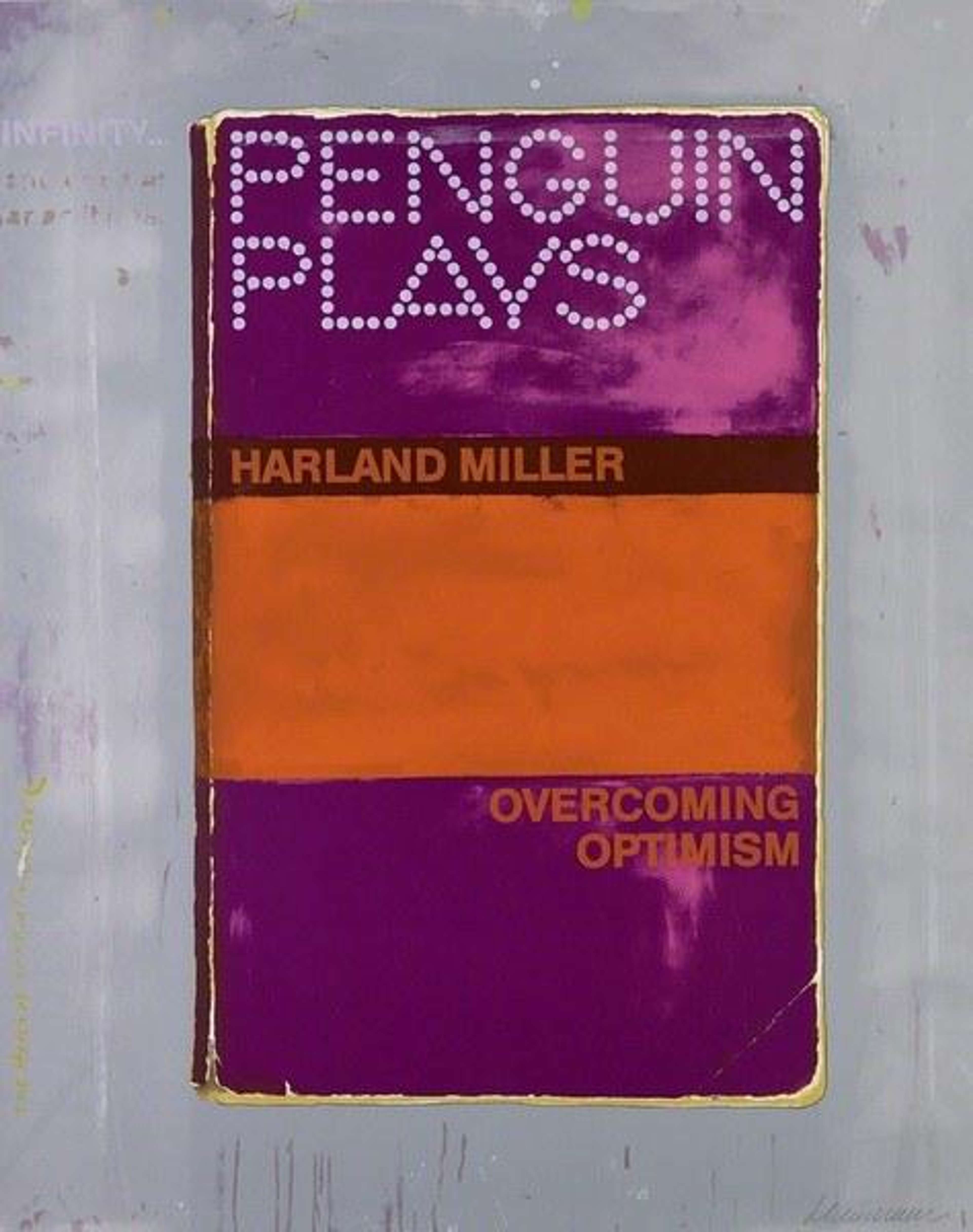
Overcoming Optimism

Overcoming Optimism
Signed Print
Harland Miller
£4,850-£7,500
$10,000-$15,000 Value Indicator
$9,000-$14,000 Value Indicator
¥45,000-¥70,000 Value Indicator
€5,500-€8,500 Value Indicator
$50,000-$80,000 Value Indicator
¥1,010,000-¥1,560,000 Value Indicator
$6,500-$10,000 Value Indicator
There aren't enough data points on this work for a comprehensive result. Please speak to a specialist by making an enquiry.
138 x 110cm, Edition of 50, Screenprint
Auction Results

Track auction value trend
Meaning & Analysis
Executed in 2014, Overcoming Optimism belongs to one of Harland Miller’s most recognised series of works inspired by the Penguin book covers. Sharing its title with the name of the exhibition for which it was made and where it was first displayed, from November 2012 - January 2013 at the Ingleby Gallery in Edinburgh. Drawing upon his Northern roots and steeped in British heritage, Miller’s work celebrates a treasured part of his country’s national aesthetic identity, whilst at the same time forging a fresh interpretation of that aesthetic that catapults it straight into contemporary culture, reimagined in a new, artistic context alongside bold text.
Overcoming Optimism is discretely branded in vibrant orange against a rich, purple ground, characteristic of the more adventurous Penguin cover design. The alliteration, positioning and simplicity disguise the sarcastic undertones of the text, loaded with the black humour that Miller cites as a fundamental part of his upbringing in the “carnage” of life in the industrial North East.
Poignant and subversively sociopolitical, Overcoming Optimism cites Miller himself as its creator, as all his book cover works do. Explaining his love of text in his works, Miller himself actually first achieved widespread critical recognition as a writer, with his debut novel, Slow down Arthur, Stick to Thirty published in 2000. Then in 2001, merging his interests in image and text, Miller began creating a series of works based upon the Penguin book covers, which he picked up from thrift shops during his time spent living in Paris. Unable to understand the titles in French, he began to fabricate his own titles. Miller was able to incorporate his love of classic literature with painting. Overcoming Optimism is an archetypal example from this body of work, which combines figurative painting with elements of popular culture and literary imagery. With painterly brushstrokes and dripping colour partly obscuring the text, the effect is one of an ageing paperback infused with artistic vigour and an unmissable sense of the presence of the artist’s hand.
The faded cover, torn edges and stained, smudged pages of Overcoming Optimism nostalgically recall a lifetime history of love and use that visually references our intimate, long-standing relationship with text and language, in a visceral, physical connection between person and page that passes through the generations. The American painter Ed Ruscha is a clear influence for Miller, marrying text and image in a radical juxtaposition using slogans and phrases to compliment his paintings. Mark Rothko, too, is another such acknowledged source of inspiration for the British artist, with his use of prominent bands of colour such as the radiant orange and deep purple seen in the visual aesthetic of Overcoming Optimism.